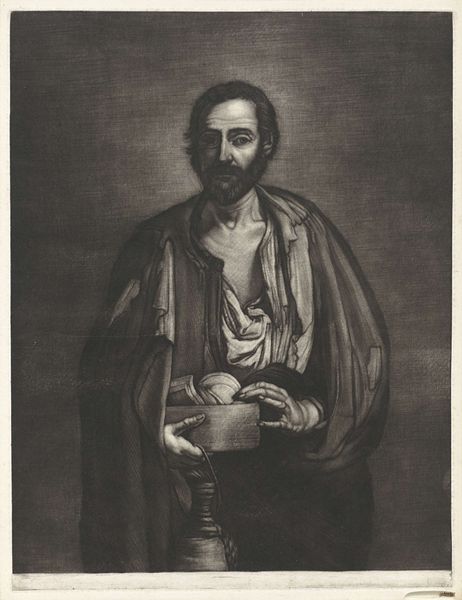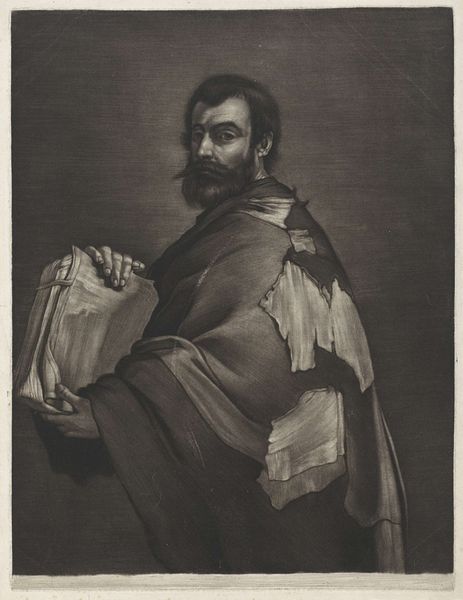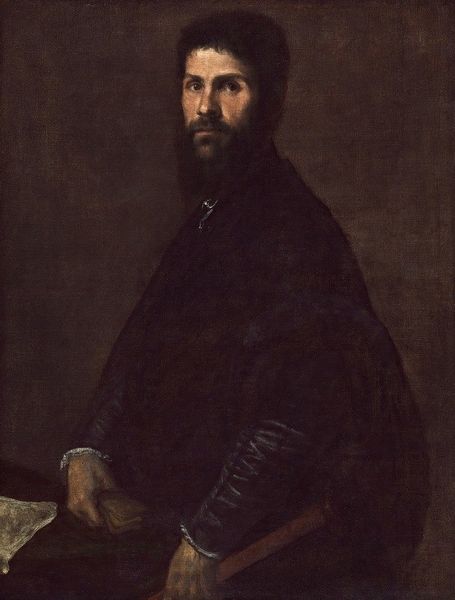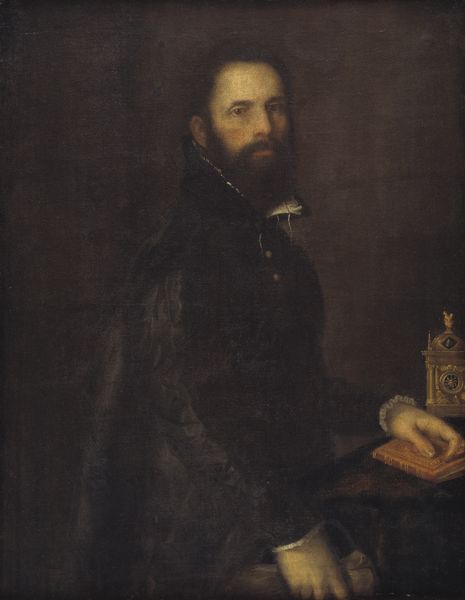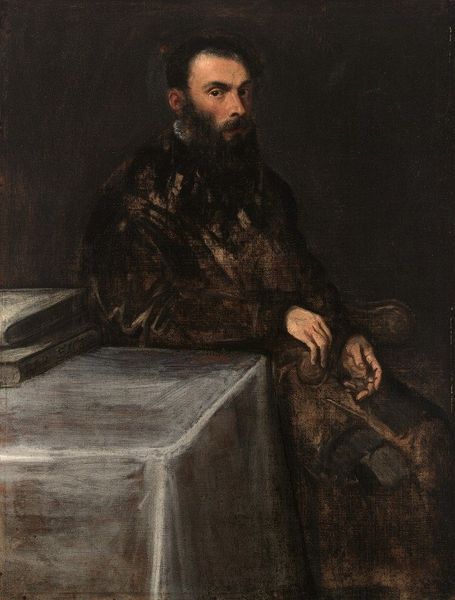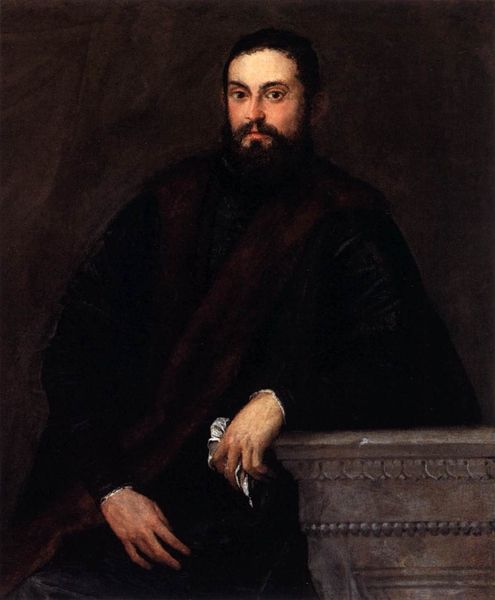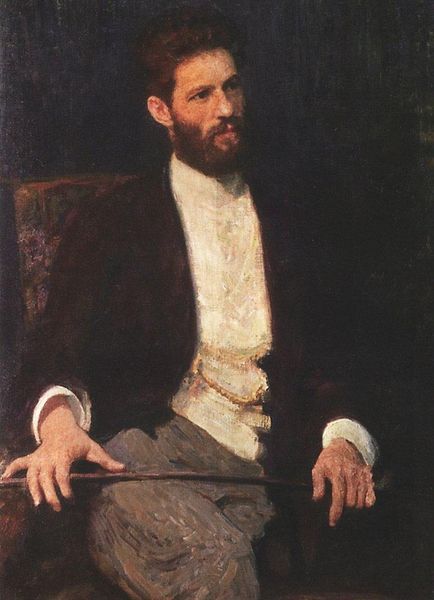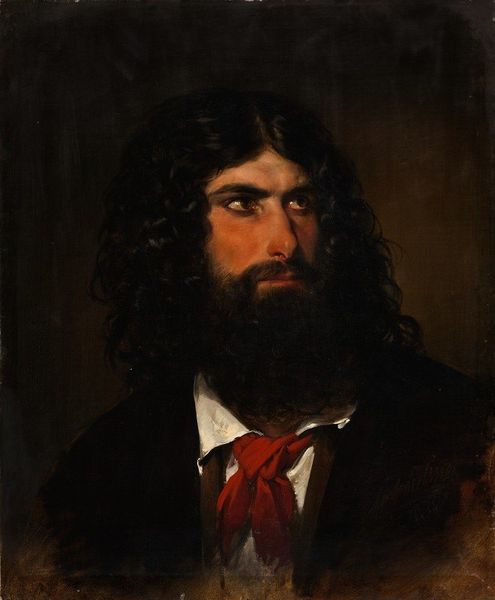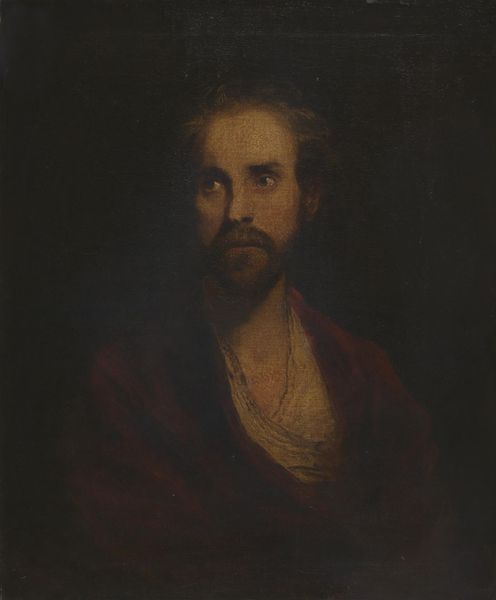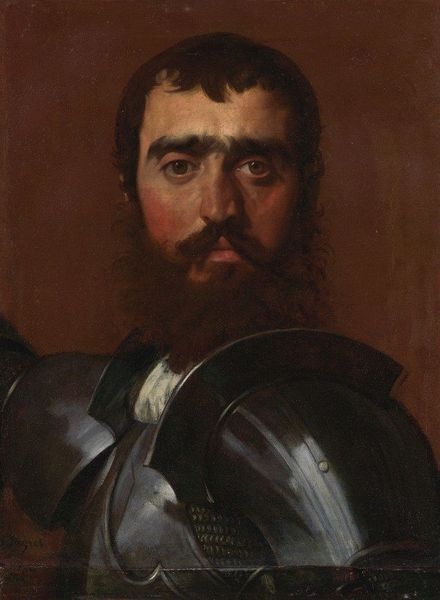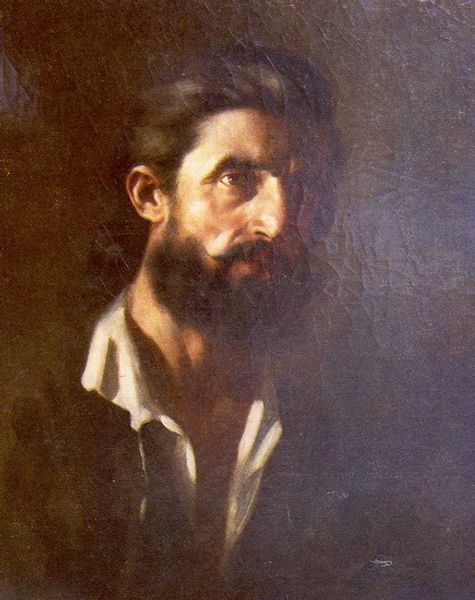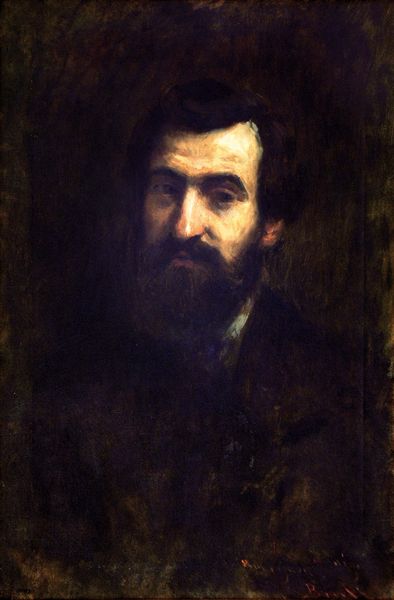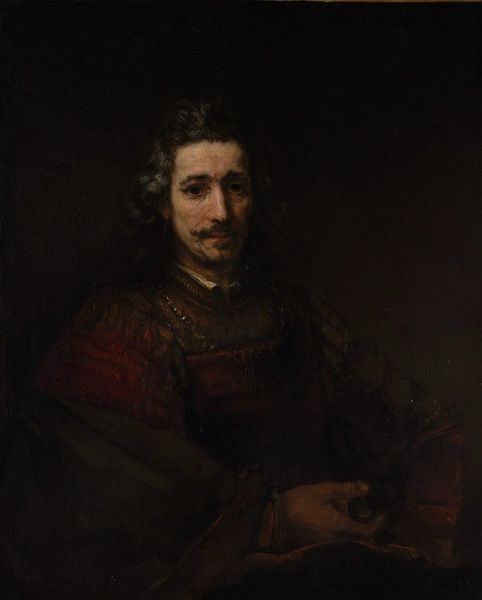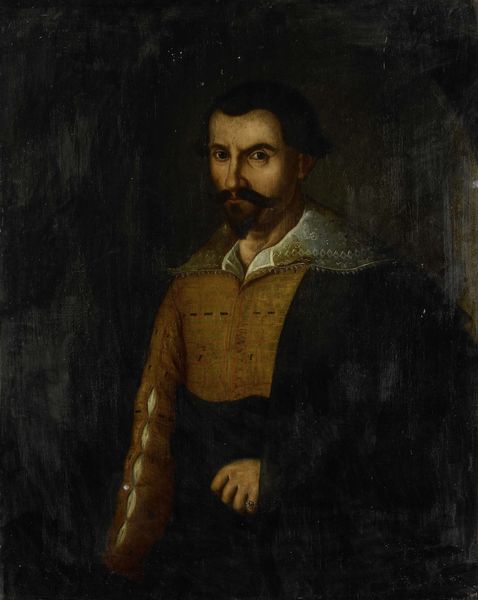
painting, oil-paint
#
portrait
#
figurative
#
baroque
#
painting
#
oil-paint
#
portrait art
Copyright: Public Domain: Artvee
Curator: This oil painting, attributed to Jusepe de Ribera, presents us with “A Philosopher with a Wine Flask.” What strikes you about it? Editor: Immediately, it's the palpable melancholy. The shadows are so dominant, the man emerging from this gloom, and the rough textures suggesting hardship or inner turmoil. It's a heavy, evocative scene. Curator: The flask is key here. For Ribera, it could symbolize the intoxicating, often disorienting quest for wisdom. Philosophers sought truth, often wrestling with complex ideas – the wine flask a metaphorical or perhaps literal accompaniment to their contemplation. Editor: And who are these philosophers for whom we have no names? I think about this individual’s access to these luxuries in a time of poverty, famine and pestilence, with questions of privilege inevitably raised. Is the picture glorifying philosophy as pure thinking or hinting at a certain detachment from societal needs? Curator: That’s a provocative reading! Consider though: the unkempt presentation suggests an almost ascetic rejection of material comforts. The wine could represent knowledge that both sustains and inebriates – consider that classical philosophers saw wine as inspiration. Editor: I see your point, but what does it mean to create idealized, romanticized images, such as the “wise drunkard,” and at whose expense? Curator: Consider that this canvas employs dramatic chiaroscuro – the strong contrast between light and shadow - emphasizing not just the philosopher's features, but also the weight of the questions he carries. In a way, he is also illuminated through struggle, thus perhaps worthy. Editor: While I appreciate the chiaroscuro’s dramatic effect, I can’t shake the thought that perhaps the most critical lens is not about his "struggle," but rather who wasn't portrayed, whose labor might have produced that wine. Curator: This piece, though dark and perhaps troubled, encourages introspection, asking us to grapple with timeless concepts and think through these lasting archetypes. Editor: Ultimately, for me, the painting is more a reflection on the social complexities inherent in knowledge production, prompting questions rather than offering simple answers about individuals, classes, genders, power and philosophy.
Comments
No comments
Be the first to comment and join the conversation on the ultimate creative platform.
